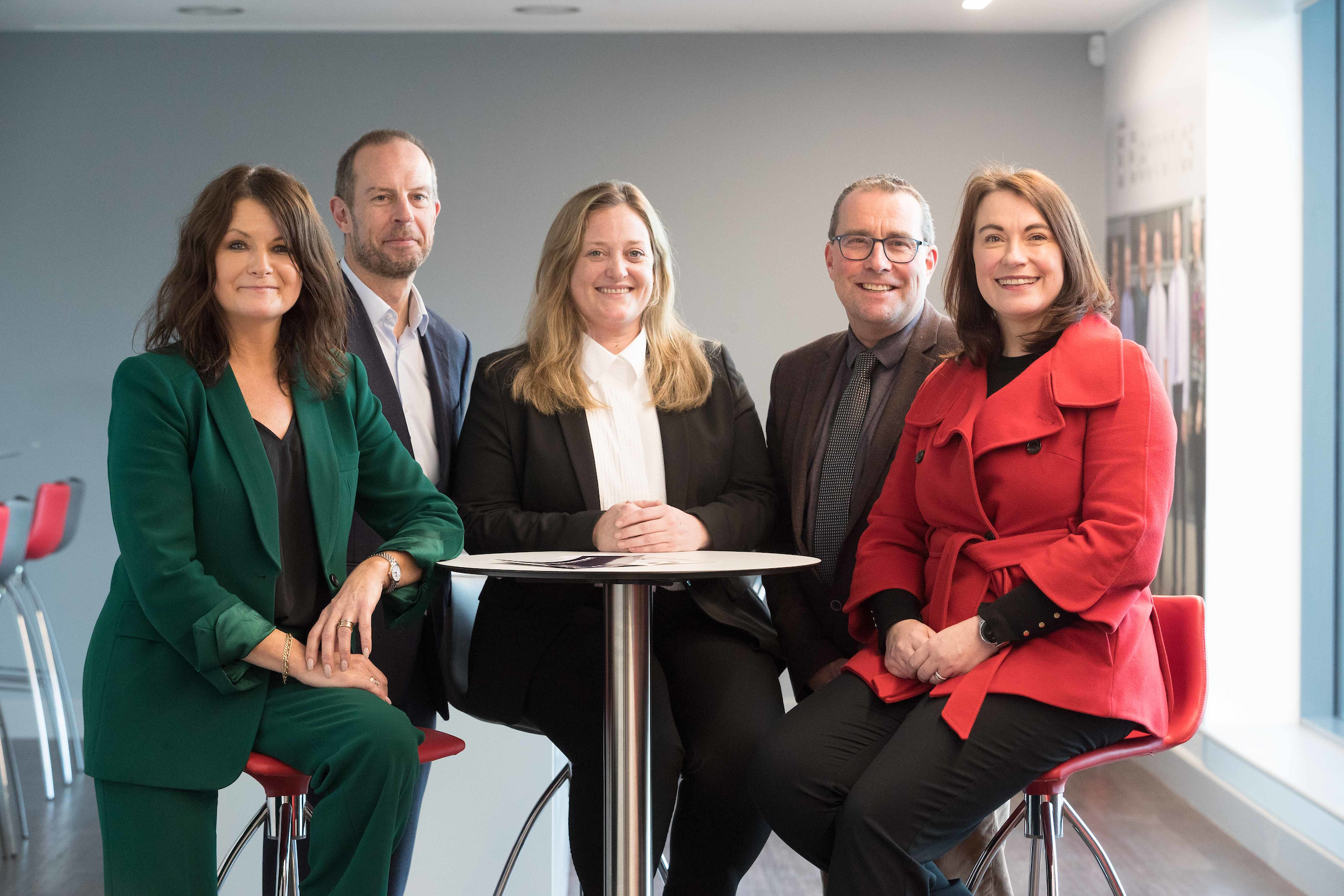
Human Capital remains a top priority for Organisations in 2023
Shannon Chamber chief executive Helen Downes pictured at the launch of the Adare Human Resource Management HR Barometer Report with (from left): Derek McKay, executive director and Sarah Fagan, managing director, Adare Human Resource Management; Peter Murphy, strategic business development manager, Ei Electronics; and Amanda Finnegan, senior organisational development consultant, Adare Human Resource Management. Photograph by Eamon Ward
Key HR Trends and Insights from Adare Human Resource Management’s HR Barometer Report presented at Shannon Chamber seminar
With talent acquisition and skills shortages uppermost considerations for business today, human resource practitioners from throughout the region gathered at a Shannon Chamber seminar in Ei Electronics Centre of Excellence in Shannon to hear the key findings from the latest HR Barometer Report undertaken by Adare Human Resource Management.
The HR Barometer, now in its eight edition, presents key insights and HR trends gathered in October 2022 through surveying 190 Senior HR practitioners and leaders throughout Ireland.
Talent Retention & Recruitment and Talent Acquisition top 2 HR priorities for Irish businesses for 2023
Rising inflation and the buoyancy of the employment market has continued to impact businesses in the Munster region and nationwide, putting additional strains on businesses as they seek to retain and attract key talent. As the leading priorities for 2023, businesses must now move away from reactionary measures in addressing the areas of retention and recruitment and talent acquisition and shift their focus to more longer-term planning.
Strategic HR plays a pivotal role not only in the day-to-day requirements of a business but in capturing the overarching business goals and ambitions, strengthening the employer value proposition. Data from the HR Barometer outlined an expected average employee turnover of 11.1% in 2023 demonstrating a return of confidence in the labour market from the upheaval felt in 2022. Businesses should not be complacent but rather see this as an opportunity to apply long-term retention and talent acquisition strategies that apply workforce modelling and succession plans that will support the practice of agile skills.
Speaking at the seminar, managing director of Adare Human Resource Management and facilitator of Shannon Chamber’s HR Forum, Sarah Fagan said: “Retention remains a high priority for companies. This is very evident in the planned increase in expenditure in learning and development highlighted in the HR Barometer. Companies now realise that fostering employee loyalty and engagement involves planning retention strategies and investing in their people in the longer term. Being a purposeful organisation is about taking a holistic view on the impact of your business, and your people are the very foundation of creating that culture, so investing in your employees, their experiences and their journeys is a pivotal move to secure your long-term ambitions.”
Investment in Human Capital integral to 2023
According to the research and findings of the HR Barometer, 58% of organisations plan to increase their spend on learning and development, through allocating 9.04% of overall payroll to skills’ development, a significant increase on previous years.
Speaking on the investment in learning and development, Ms Fagan commented: “This is hugely significant for both employees and employers and points to a recalibration of agility in ensuring the development of skills relevant to your business will remain consistent and effective. This approach will assist businesses in addressing the next big challenge. However, the survey results point to a lack of measurement on the return on investment from learning and development initiatives, an important factor to ensuring the relevancy and effectiveness of skills development”.
Shannon Chamber chief executive Helen Downes added: “The uptake in learning and development that we are witnessing through our Skillnet Business network points to an appreciation of the value of employee upskilling, which augurs well for positioning the region as an attractive place to work.
“The HR Barometer offers excellent insights for senior HR practitioners whose organisations’ data was not captured in the survey. It will enable them to benchmark themselves against the findings to ensure that they not only retain staff but remain an attractive employment option for those seeking to work in the region.
“The benefits of investment in the employee experience are not just about balancing employee and organisational preferences but must now focus on key impacts and the return on investment in areas such as learning and development both of which will support future growth and sustainability,” Ms Downes added.
